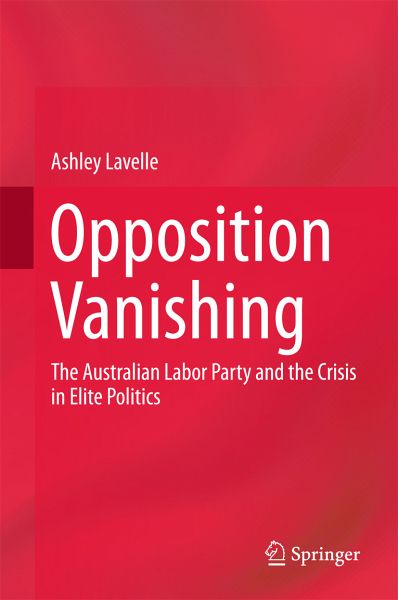
Opposition Vanishing (eBook, PDF)
The Australian Labor Party and the Crisis in Elite Politics
Versandkostenfrei!
Sofort per Download lieferbar
72,95 €
inkl. MwSt.
Weitere Ausgaben:

PAYBACK Punkte
36 °P sammeln!
Investigates thoroughly an example of a social democratic party in Opposition
Addresses whether Opposition is an institution in decline in the West
Turns a spotlight on the Australian Labor Party in Opposition
Dieser Download kann aus rechtlichen Gründen nur mit Rechnungsadresse in A, B, BG, CY, CZ, D, DK, EW, E, FIN, F, GR, HR, H, IRL, I, LT, L, LR, M, NL, PL, P, R, S, SLO, SK ausgeliefert werden.












